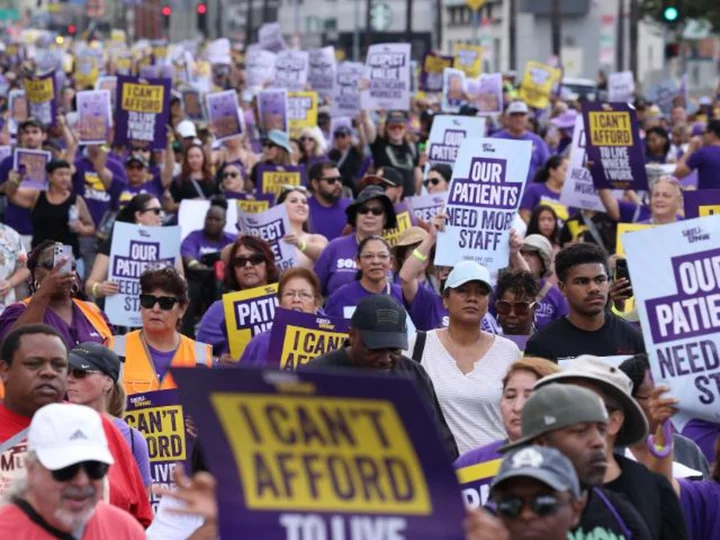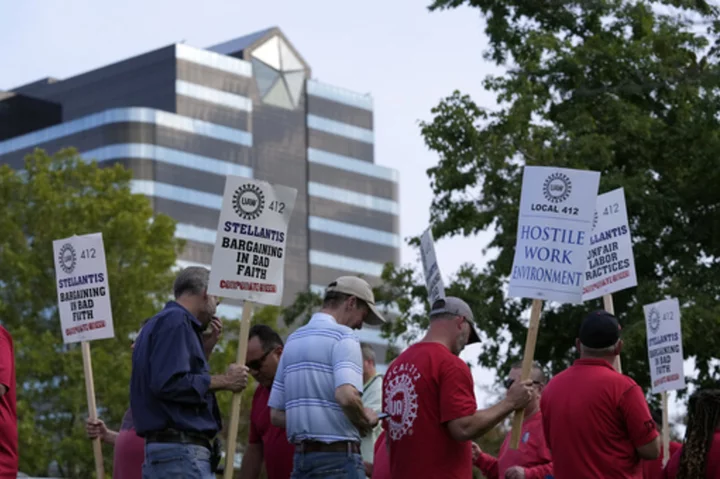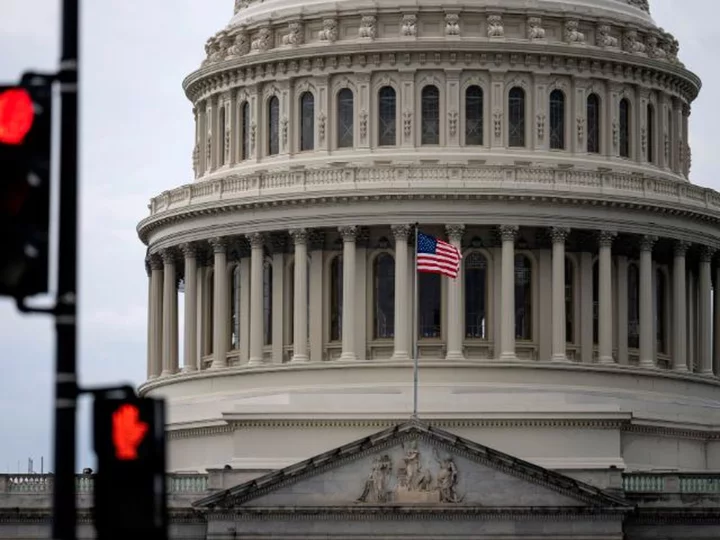Tens of thousands of unionized health care workers are set to walk off the job starting Wednesday if contract negotiations with their employer, Kaiser Permanente, fall through this weekend.
Here are five things to know about the potential strike:
This would be the largest ever health care strike in the US
More than 75,000 health care employees who work at hundreds of Kaiser Permanente facilities across California, Colorado, Oregon, Washington, Virginia, and Washington DC plan to strike from October 4 through October 7 if a labor deal is not successfully negotiated by the workers' contract deadline: 11:59 pm Pacific Time on September 30.
Kaiser Permanente is one of the nation's largest not-for-profit health providers. Patients pay for a membership and gain access to Kaiser Permanente's health care services. Kaiser Permanente has 12.7 million members and operates 39 hospitals and 622 medical offices, according to its website.
The strike would be the largest US health care strike in history, according to data from the Bureau of Labor Statistics. It would also be the first-ever national strike effort at Kaiser Permanente, according to John August, the director for health care labor relations at Cornell and the former executive director of the Coalition of Kaiser Permanente Unions.
Not all Kaiser Permanente staff will walk off the job next week, though. The unionized staff are part of Service Employees International Union-United Healthcare Workers West union (SEIU-UHW), which represents a wide range of hospital workers, including nursing staff, EMTs, lab technicians, optometrists and many others who help support hospital operations. The union said it represents about 40% of the overall Kaiser Permanente workforce.
Patients may feel the effects of a strike
In a statement to CNN, a spokesperson for Kaiser Permanente said they "have plans in place" in the event a strike happens next week, but urged their employees to reject a strike.
"Given the progress being made in national bargaining over the weekend and Monday, there is no reason to strike. The best place to reach an agreement is at the bargaining table," the spokesperson said. "We take any threat to disrupt care for our members seriously and have plans in place to ensure we can continue to provide high-quality care should a strike actually occur next week."
But August said patients would likely feel the effects of the work stoppage.
"Managers are still going to be there, the doctors are still going to be there. From the outside looking in, it's easy to say that it's not going to be that disruptive," he said. "The reality is it's extremely disruptive."
Unionized staff want raises and a fix for labor shortages
The union is asking for across-the-board raises, job protections against outsourcing and subcontracted workers, updates to employees' retiree medical benefits and more notice when people working remotely are asked to return to the office, among other demands.
Negotiations began in April, but the union said Kaiser has delayed responding to labor proposals and is committing unfair labor practices against its members.
Unionized staff say that their salaries have not kept up with the high cost of living in the areas where they work.
"Workers are really being squeezed right now," said Renee Saldana, a spokesperson for SEIU-UHW. "They went through the worst global health crisis in a generation and then they come out and they're worried about paying rent, they're worried about losing their house, they're worried about living in their cars."
Employees also say they are overworked due to a staffing shortage "crisis," and that Kaiser Permanente should be taking steps to attract more workers.
"Workers are up at night the day before their shift just thinking about what they're gonna walk into the next day because of short staffing," said Gabe Montoya, a 44-year-old EMT who works at a Kaiser Permanente hospital in Downey, California.
In Montoya's department, there are often between five and seven EMTs working in an 85-bed emergency room, he said.
"We should have at least 15 or 16 EMTs on if we're really going to fully function," he said.
In a statement, a spokesperson for Kaiser Permanente said that "every health care provider in the nation has been facing staffing shortages and fighting burnout," but that Kaiser Permanente has made progress in addressing these issues.
"Kaiser Permanente and the Coalition agreed while bargaining in April to work together to accelerate hiring, setting a joint goal of hiring 10,000 new people for Coalition-represented jobs by the end of 2023. Kaiser Permanente's efforts are paying off: We expect to reach the 10,000 new hire goal by the end of October, if not sooner," the spokesperson said. "We are committed to addressing every area of staffing that is still challenging. We've also taken actions to streamline the screening, hiring and onboarding process."
A longer strike in November could have a wide-reaching impact
If no deal is reached after the shorter strike, SEIU-UHW said its members are prepared for another "longer, stronger" strike in November when a separate contract for some unionized employees in Washington state expires, potentially adding additional workers to the picket line. It's not yet clear how long a strike in November would last.
A longer strike could make much more of a dent in the US economy and hurt patients' ability to get the care they need. August said that though Kaiser Permanente patients and operations would feel the pain from a work stoppage next week, the overall economic impact of a short-term strike would likely be minimal.
"In a short strike of several days, you're not going to see a lot of overflow into the broader economy of a community like you would in a longer strike," he said.
More workers are going on strike
A potential health care workers' strike would be one in a long line of organized labor efforts that have occurred this year. Nearly 300 strikes have taken place in the United States so far this year, according to data compiled by researchers at Cornell University's School of Industrial and Labor Relations.
The United Auto Workers union is currently striking against the "Big Three" automakers: Ford, General Motors and Stellantis. It is the first time the union has ever struck all three automakers at the same time.
And strikes in Hollywood have paralyzed the entertainment industry over the past few months. The Writers' Guild of America announced an end to its months-long strike earlier this week, but an actors' strike is ongoing.
In Los Angeles, a union for city workers and another for hotel workers staged temporary strikes this summer, as well.









